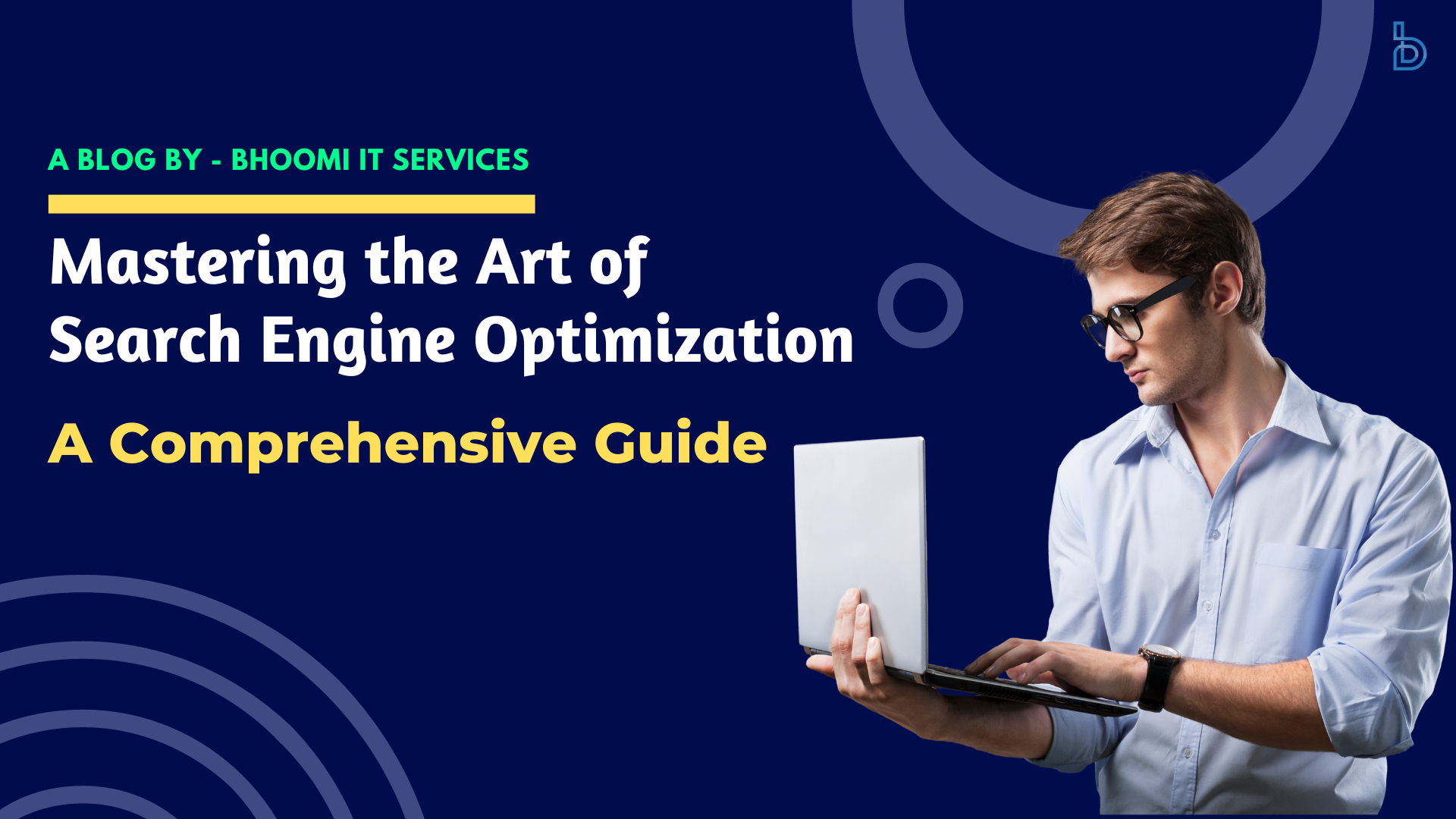For individuals and businesses alike, having a strong online
presence is essential in the ever-changing digital landscape. Search engine
optimization (SEO) is one of the best techniques to increase organic website
traffic. You can improve your website's exposure, draw in relevant traffic, and
ultimately raise your online success by optimizing it for search engines. In
this thorough guide, we will look into the key tactics and strategies for
improving your website's search engine optimization and search rankings.
Understand
the Basics of SEO
It is crucial to have a firm grasp of what SEO includes before
delving into the complexities of website optimization. A variety of tactics are
used in SEO to increase the visibility of your website on search engine result
pages (SERPs). It includes both on-page and off-page strategies, such as link
development, technical SEO, keyword research, content optimization, and user
experience improvement.
Conduct
Thorough Keyword Research
Keywords form the basis of SEO. Decide which pertinent terms and
expressions your target market's consumers are most likely to employ when
searching. Utilize keyword research tools to identify high-traffic, low-competition
keywords that support your content and company objectives. In the headers,
headings, and body copy of your writing, naturally incorporate these keywords.
Create
High-Quality, Engaging Content
In terms of SEO, content reigns supreme. Create compelling,
insightful, and high-quality material that speaks to the wants and needs of
your target market. Your content, whether it be blog posts, articles, videos,
or infographics, should add value, address concerns, and demonstrate your
subject-matter expertise. To keep your material fresh and relevant, update it
frequently.
Optimize
On-Page Elements
On-page optimization involves optimizing various elements within
your website's individual pages. This includes:
·
Title Tags: Create descriptive, keyword-rich title tags for your content that
appropriately reflect it.
·
Meta Descriptions: Write engaging meta descriptions to persuade visitors to click
through to your website.
·
Header Tags: Use appropriate heading tags (H1, H2, H3, etc.) to organize your
text and draw attention to important details.
·
URL Structure: Create clean, descriptive URLs with pertinent keywords.
·
Image Optimization: To increase accessibility and SEO, optimize images by giving them
informative file names and alt tags.
Prioritize
Technical SEO
Technical SEO makes ensuring that search engines can access,
crawl, and index your website. Some important technical details to pay
attention to are:
·
Mobile Responsiveness: Make sure your website is mobile-responsive
to accommodate users using different devices.
·
Site Speed: For a better user experience and higher rankings,
speed up the loading of your website.
·
XML Sitemap: Create an XML sitemap to aid search engines in
comprehending the structure of your website.
·
Robots.txt: You can direct search engine crawlers and specify
which pages to index by using a robots.txt file.
Build
High-Quality Backlinks
Building high-quality backlinks from reliable and pertinent
websites is a key component of off-page SEO. Backlinks serve as
"votes" for the legitimacy and applicability of your website. Create
a link-building strategy that includes collaborations with credible websites in
your field, influencer outreach, and guest posting.
Enhance
User Experience
User experience (UX) is important to SEO. Longer on-site engagement,
fewer bounces, and higher rankings are all results of good UX. Think about:
·
Intuitive Navigation: Design a user-friendly and transparent
website structure for intuitive navigation.
·
Mobile Optimization: Ensure consistent design and usability across
all platforms.
·
Page Layout and Readability: Use a neat, orderly layout with
readable fonts and the right amount of white space.
Monitor
and Analyze Performance
Utilize tools like Google Analytics and Google Search Console to
frequently check the effectiveness of your website. Examine important
indicators including keyword rankings, click-through rates, bounce rates, and
organic traffic. Utilize these data to find areas where your SEO approach needs
to be improved.
The process of search engine optimization is complex and calls for
a combination of technical expertise, strategic planning, content generation,
and ongoing monitoring. You may improve your website's search engine exposure,
get targeted traffic, and create a strong online presence that promotes long-term
success by implementing the comprehensive tactics described in this manual.
Remember that SEO is a continuous process and that maintaining and enhancing
your website's search rankings over time requires knowledge of the most recent
trends and best practices.
Elevate
Your Website with Bhoomi IT Services' SEO Excellence
Your one-stop shop for unmatched Search Engine Optimization (SEO)
skills is Bhoomi IT Services. With a history of groundbreaking web creation,
our team extends its forward-thinking methodology to improve the search engine
rankings of your website.
Since 2016, we have become known for excellence, working in
collaboration with numerous companies to produce outstanding results using
technology, imagination, and strategy. Our track record of success speaks
eloquently about our capacity to negotiate the challenging SEO environment and
produce more visible and organic traffic.
Unveil a customized strategy that supports your company's goals.
Our professionals carefully develop individualized plans, bringing creativity
and innovation to every campaign. We keep you informed through open
communication, ensuring that our partnership is based on trust and mutual
success.
Watch how your website grows as our enthusiasm and knowledge
improve your search rankings. Bhoomi IT Services' dedication to quality is
unwavering, enabling your website to reach its full potential online.
By working with us, you may start a journey where superb SEO and
web development meet and help your website reach new heights. Join forces with
Bhoomi IT Services and embrace a future where strategy and technology converge
flawlessly to produce unmatched online success.
FAQs
Q: What is SEO, and why is it important for my website?
The goal of search engine optimization (SEO) is to increase the
visibility of your website on search engine results pages (SERPs). It raises
the position of your website in organic search results, bringing in more
targeted visitors, and enhancing your online presence.
Q: How long does it take to see results from SEO efforts?
SEO is a long-term strategy, and results can change based on the
competition, the efficiency of your optimization efforts, and the current
health of your website. In general, you might start noticing changes within a
few months, with more changes over time.
Q: What is on-page optimization, and how does it affect SEO?
On-page optimization entails improving a number of aspects on each
page of your website, including the content, meta tags, headings, and URLs. It
makes sure that your content is pertinent and simple for search engines to
interpret, resulting in improved user experiences and higher results.
Q: How important are keywords in SEO, and how do I choose the
right ones?
In SEO, keywords are essential since they enable search engines to
comprehend the content of your pages. For your niche, conducting in-depth
keyword research is necessary to uncover relevant and popular search terms. Aim
for a balance between search traffic and competition when choosing keywords,
matching them to your content and users' intentions.
Q: What is link building, and why is it significant for SEO?
Acquiring high-quality backlinks from other websites to your own
is the process of link building. Backlinks are viewed by search engines as
indicators of the authority and relevance of your website. Your SEO efforts
might be aided by a solid link profile by raising the authority and search
ranks of your website.
Q: How does user experience (UX) impact SEO?
User experience is a key component of SEO. Longer user engagement,
fewer bounces, and higher rankings are all results of good UX. Google rewards
websites that deliver a smooth and engaging user experience across a variety of
devices, which eventually affects your search visibility.
Q: Do I need technical expertise to implement SEO on my website?
To apply fundamental SEO methods, you do not necessarily need to
be an expert, however, having some technical expertise might be helpful.
Without much technical knowledge, content optimization, keyword utilization,
and user-friendly design can be accomplished. However, seeking professional
advice may be prudent for more complex technical SEO chores.
Q: How often should I update my website's content for optimal SEO?
To maintain the content on your website current and engaging,
update it frequently. Adding fresh and interesting material to your website can
increase traffic and encourage search engines to explore and index it more
frequently. There is no hard and fast rule, though; it all depends on your
niche, target market, and type of material.
Q: Is SEO a one-time effort, or do I need to maintain it
continuously?
A continual process is SEO. Your rivals are continually striving
for the top spots as search engines regularly improve their algorithms.
Continuous monitoring, corrections, and modifications to your SEO strategy are
necessary to preserve and boost your rankings.




















